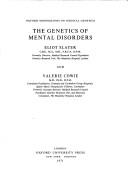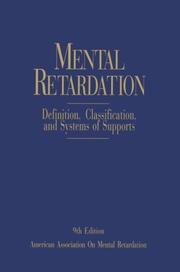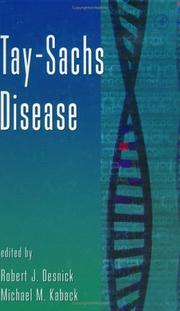| Listing 1 - 10 of 70 | << page >> |
Sort by
|
Book
ISBN: 2070785688 9782070785681 Year: 2008 Publisher: Paris : Gallimard,
Abstract | Keywords | Export | Availability | Bookmark
 Loading...
Loading...Choose an application
- Reference Manager
- EndNote
- RefWorks (Direct export to RefWorks)
On a beaucoup écrit sur la bêtise, mais le bilan reste assez modeste. En dépit de quelques tentatives, qu'il faut d'ailleurs porter au crédit d'écrivains (Jean Paul, Flaubert, Bloy, Musil, Barthes), la bêtise n'a pas bénéficié d'une investigation systématique et sa définition reste confuse. La philosophie, dont la fonction selon Nietzsche serait de "nuire à la bêtise" , a oublié sa mission, et c'est à réparer cet oubli que s'emploie Alain Roger.On s'est fourvoyé quand on a voulu voir dans la bêtise une chute dans l'animalité ou l'irrationalité. L'auteur montre au contraire qu'elle s'autorise des lois de la raison, et même s'en réclame avec fatuité : "La bêtise n'est pas une carence ni une déficience : si elle pêche, c'est par excès". Ce qu'il nomme la raison suffisante, dont la forme la plus spectaculaire est la bêtise identitaire, qui s'exprime par prédilection dans la tautologie : "Un sou est un sou".Face aux carences de la philosophie, l'abondance des références littéraires donne à penser que la bêtise est en son propre l'affaire des écrivains : "On pourrait même se demander s'ils ne l'ont pas inventée". Ce Bréviaire se fait dès lors "bestiaire" et expose les principales figures de la bêtise à travers la comédie, chez Molière, Labiche, Feydeau, et le roman, de Balzac à Proust en passant par Flaubert, dont l'oeuvre peut être considérée comme une anthropologie de la bêtise.Ecce Homais.
Bêtise --- Littérature --- Dans la littérature. --- Philosophie --- Stupidity --- Stupidity in literature --- Idiocy --- Inefficiency, Intellectual --- Intellect --- Philosophie.
Book
Abstract | Keywords | Export | Availability | Bookmark
 Loading...
Loading...Choose an application
- Reference Manager
- EndNote
- RefWorks (Direct export to RefWorks)
Intellectual and Developmental Disabilities presents reports on a wide range of areas in the field of neurological and intellectual disability, including habitual human quadrupedal locomotion with associated cognitive disabilities, Fragile X syndrome, autism spectrum disorders, Down syndrome, and intellectual developmental disability among children in an African setting. Studies are presented from researchers around the world, looking at aspects as wide-ranging as the genetics behind the conditions to new and innovative therapeutic approaches.
Book
ISBN: 0416807208 Year: 1974 Publisher: London : Methuen,
Abstract | Keywords | Export | Availability | Bookmark
 Loading...
Loading...Choose an application
- Reference Manager
- EndNote
- RefWorks (Direct export to RefWorks)
Mental retardation --- Idiocy --- Intellectual disabilities --- Mental deficiency --- Retardation, Mental --- Developmental disabilities --- Psychology, Pathological --- Intellect --- People with mental disabilities --- Intellectual disability. --- Intellectual disability

ISBN: 0192641301 Year: 1971 Publisher: London, New York, : Oxford University Press,
Abstract | Keywords | Export | Availability | Bookmark
 Loading...
Loading...Choose an application
- Reference Manager
- EndNote
- RefWorks (Direct export to RefWorks)
Mental illness --- Intellectual disability --- Genetic aspects. --- Mental retardation --- Mental Disorders --- Idiocy --- Intellectual disabilities --- Mental deficiency --- Developmental disabilities --- Psychology, Pathological --- People with mental disabilities --- Genetic aspects --- genetics
Periodical
Abstract | Keywords | Export | Availability | Bookmark
 Loading...
Loading...Choose an application
- Reference Manager
- EndNote
- RefWorks (Direct export to RefWorks)
Developmental disabilities --- Intellectual disability --- Developmental disabilities. --- Intellectual disability. --- Idiocy --- Intellectual disabilities --- Mental deficiency --- Mental retardation --- Psychology, Pathological --- People with mental disabilities --- Disabilities --- Developmentally disabled

ISBN: 0940898306 9780940898301 Year: 1997 Publisher: Washington (D.C.) American Association on Mental Retardation
Abstract | Keywords | Export | Availability | Bookmark
 Loading...
Loading...Choose an application
- Reference Manager
- EndNote
- RefWorks (Direct export to RefWorks)
1997
Mental retardation --- Classification --- Mensen met een verstandelijke beperking --- Diagnose --- Idiocy --- Intellectual disabilities --- Mental deficiency --- Developmental disabilities --- Psychology, Pathological --- People with mental disabilities --- Persoon met een verstandelijke handicap --- Oudere --- Gemeenschap --- School --- Buurt --- Mental Retardation --- Classification. --- Mental retardation - Classification --- Diagnostiek
Book
ISBN: 3036563091 3036563105 Year: 2023 Publisher: [Place of publication not identified] : MDPI - Multidisciplinary Digital Publishing Institute,
Abstract | Keywords | Export | Availability | Bookmark
 Loading...
Loading...Choose an application
- Reference Manager
- EndNote
- RefWorks (Direct export to RefWorks)
The purpose of this Special Issue on inclusive research is to capture internationally, "How far have we come?" and "Where do we need to go?" Such questions are relevant now that it has been close to two decades since Walmsley and Johnson (2003) first introduced the inclusive research paradigm in their text, Inclusive research with people with learning disabilities: past, present, and futures. Within this Special Issue we have reprinted 18 articles that promote inclusive research as a paradigm that has succeeded in transferring power to people with intellectual disabilities who were once the "researched" to now being and becoming the "researchers". The articles draw upon the work of co-researchers both with and without the lived experience of disability who have adopted inclusive research as a paradigm to redress the exclusion of people with intellectual disabilities as researchers. All the 18 articles have an eye on the future and are sequenced across the following themes: the individual impact of being and becoming an inclusive researcher; building inclusive research relationships as a duo; being part of an inclusive research network; and using inclusive research to push boundaries and facilitate issues of importance identified by people with disabilities. The reprint concludes with two articles where inclusive researchers of long standing reflect on how to continue to walk forward on the road that aided by this reprint will become more well-travelled?
Intellectual disability. --- Research. --- Science --- Science research --- Scientific research --- Information services --- Learning and scholarship --- Methodology --- Research teams --- Idiocy --- Intellectual disabilities --- Mental deficiency --- Mental retardation --- Developmental disabilities --- Psychology, Pathological --- People with mental disabilities --- Research

ISBN: 0120176440 9786611004767 1281004766 0080490301 Year: 2001 Volume: 44 Publisher: San Diego (Calif.) : Academic press,
Abstract | Keywords | Export | Availability | Bookmark
 Loading...
Loading...Choose an application
- Reference Manager
- EndNote
- RefWorks (Direct export to RefWorks)
Amaurotic family idiocy --- GM2 gangliosidosis [Type 1 ] --- Gangliosidosis GM2 type 1 --- Hexosaminidase A deficiency (Tay-Sachs) --- Idiotie amaurotique de famille --- Maladie de Tay-Sachs --- Tay-Sachs [Maladie de ] --- Tay-Sachs [Ziekte van ] --- Tay-Sachs disease --- Type 1 GM2 gangliosidosis --- Ziekte van Tay-Sachs --- Système nerveux --- Nervous system --- Maladie de l'homme --- Human diseases --- Dégradation --- degradation --- Trouble du métabolisme --- Metabolic disorders --- Enzymes --- Code génétique --- genetic code --- Épidémiologie --- Epidemiology --- Tay-Sachs disease. --- #SBIB:316.334.3M20 --- Amaurotic familial idiocy --- GM2 gangliosidosis, Type 1 --- Sachs disease --- Gangliosidoses --- Sociale epidemiologie en etiologie: sociale aspecten van ziekte en gezondheid --- degradation.
Book
ISBN: 0839116373 0839116365 Year: 1980 Publisher: Baltimore : University Park Press,
Abstract | Keywords | Export | Availability | Bookmark
 Loading...
Loading...Choose an application
- Reference Manager
- EndNote
- RefWorks (Direct export to RefWorks)
Mental retardation --- Children with mental disabilities --- People with mental disabilities --- Community mental health services --- Mentally handicapped --- Physiological aspects --- Care --- Congresses. --- Education --- -Mental retardation --- -Idiocy --- -Children with mental disabilities --- Intellectual disabilities --- Mental deficiency --- Developmental disabilities --- Psychology, Pathological --- Mentally handicapped children --- Mentally retarded children --- Retarded children --- Children with disabilities --- Youth with mental disabilities --- Intellectually disabled persons --- Mental disabilities, People with --- Mentally deficient persons --- Mentally disabled persons --- Mentally disordered persons --- Mentally retarded persons --- People with intellectual disabilities --- Retarded persons --- People with disabilities --- Intellectual disability --- Mentally ill --- Conferences - Meetings --- -Intellectual disability. --- Idiocy --- Care. --- Physiological aspects. --- -Intellectual disability

ISBN: 2870090897 9782870090893 Year: 1986 Volume: 72 Publisher: Bruxelles: Mardaga,
Abstract | Keywords | Export | Availability | Bookmark
 Loading...
Loading...Choose an application
- Reference Manager
- EndNote
- RefWorks (Direct export to RefWorks)
Achterlijkheid --- Arriération intellectuelle --- Arriération mentale --- Débilité intellectuelle --- Débilité mentale --- Déficience intellectuelle --- Déficience mentale --- Gehandicapten --- Handicap intellectuel --- Handicap mental --- Handicapés --- Mental retardation --- Opvoedkunde --- Psychologie --- Pédagogie --- Zwakzinnigheid --- Mental, deficiency --- Mental Retardation --- Idiocy --- Intellectual disabilities --- Mental deficiency --- Retardation, Mental --- Intellectual Disability. --- Developmental disabilities --- Psychology, Pathological --- People with mental disabilities --- Intellectual disability. --- Intellectual disability --- Arrieration mentale
| Listing 1 - 10 of 70 | << page >> |
Sort by
|

 Search
Search Feedback
Feedback About UniCat
About UniCat  Help
Help News
News